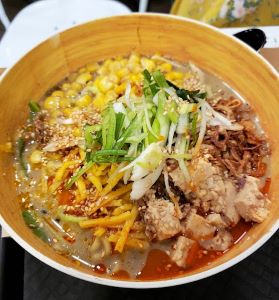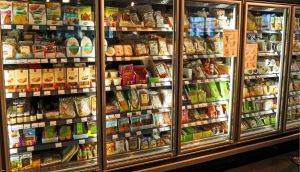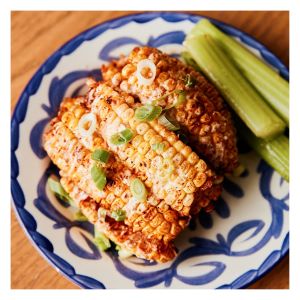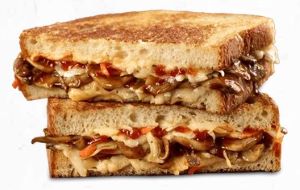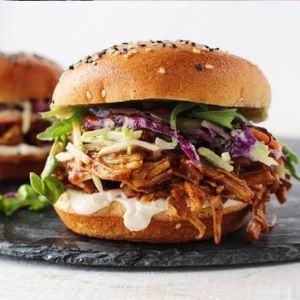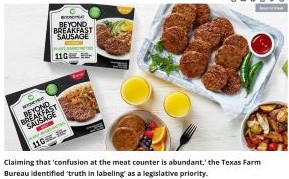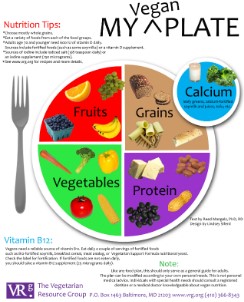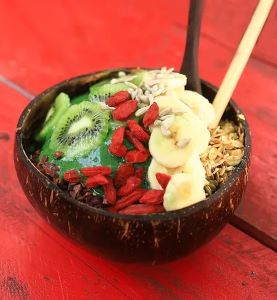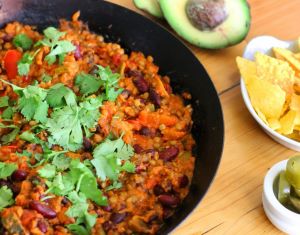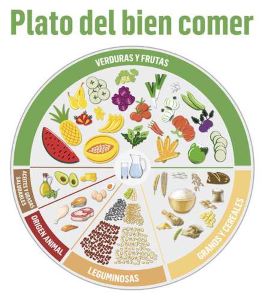Vegan Japanese Restaurants in the USA
Here’s a sampling of vegan restaurants in the United States serving Japanese cuisine.
Cha-Ya, 1686 Shattuck Ave., Berkeley, CA 94709 and 62 Valencia St., San Francisco, CA 94111; www.chaya-berkeley.com
Cha-Ya uses centuries-old cooking traditions to prepare their authentic Japanese meals. Menu items at this all-vegan restaurant include sushi rolls, noodle dishes, soups, salads, rice bowls, and desserts. Located near the UC-Berkeley campus.
House of Vegano, 1990 Central Ave., St. Petersburg, FL 33712; www.houseofvegano.com
House of Vegano gives customers a new perspective on sushi and Japanese dishes with a plant-based twist. One of the most popular plates is the Volcano Roll, made with avocado, cucumber, locally-grown Lion’s Mane mushrooms, spicy mayo, eel sauce, sriracha, gluten-free panko breadcrumbs, scallions, and vegan caviar. Need something a little more filling? Try the Tom Kha Ramen – Chili Lemongrass broth with coconut milk, topped with corn, scallions, and Vegan “Vork” Belly. All dishes are made with various exotic mushrooms and fruit as fish substitutes to add a fresh flavor punch. Choose from cold-pressed juices or Beech Kombucha (made with lemongrass, lavender, and pineapple) to quench your thirst as you dine.
Kusaki, 2535 S. Barrington Ave., Los Angeles, CA 90064; www.kusakila.com
Minimalist, modern, and sophisticated omakase bar and sushi restaurant featuring elaborate, innovative plant-based sushi, sashimi, appetizers, and shareable non-sushi dishes. À la carte options include a variety of sushi rolls, hand rolls, sashimi, and nigiri. The fillings range from vegetables like trumpet mushroom and butternut squash to vegan “seafood” like salmon, tuna, and calamari. Crowd favorites include the king sushi roll, rainbow sushi roll, seared tuna nigiri, salmon nigiri, shishito burger, and avocado crispy rice. Taste and texture-wise, Kusaki’s offerings aren’t necessarily identical to their non-vegan counterparts. That being said, they are exquisitely layered, complex, and beautifully presented adaptations of the real thing. Can’t decide what to order? Reserve a spot at the eight-seat chef’s counter where diners can pick from five-course or seven-course omakase options. This gives the chef freedom to curate a meticulously crafted dinner featuring seasonal produce, elegant plating, and a delicately flavorful journey. Most menu items can be made gluten-free, and the building is wheelchair accessible. Additionally, valet parking and street parking are available.
Ma-Kin Vegan Sushi & Izakaya, 30313 Canwood St., Unit 34-35, Agoura Hills, CA 91301; www.makinvegan.com
For those sushi-loving vegans who have been eager to add some more variety to the cucumber and avocado rolls, Ma-Kin Vegan Sushi has your solution. With a traditional bar area where you can watch the chefs prepare your food, Ma-Kin’s menu seems unrecognizable from that of a traditional sushi bar. The expected edamame and tempura appetizers and miso soup are offered, in addition to Japanese entrees such as orange chicken and shrimp and teriyaki. Using Vegan Zeastar (plant-based salmon) as well as plant-based shrimp, crab, and lobster, they are able to offer cut and hand rolls including spicy tuna, spicy crab, salmon avocado, and California—which you may choose to couple with a selection or two from their sake menu.
Nori, 3208 Guadalupe St., Ste. B, Austin, TX 78705; www.noriaustin.com
The artfulness and delicacy of Japanese cuisine are enhanced at Nori by the fact that everything is vegan, with many gluten-free options. Maintaining a plant-based kitchen, however, has certainly not limited the variety of menu offerings: celebrating vegetables and using meat replacements at times, Nori serve diners dishes such as the tempura appetizer, perhaps followed by the Nigiri sampler; a Volcano or Rainbow maki; or a Spicy Creamy Ramen. The cocktails are also works of art, and you can continue to imbibe with the peanut butter dessert shake made with screwball bourbon and candied peanuts—or else opt for the virgin Lava Cake served with fresh raspberries.
Obon Shokudo, 720 SE Grand Ave., Portland, OR 97214; www.obonpdx.com
They serve a myriad of different classic Japanese favorites made vegan! Try one of their many flavors of ‘onigiri’, a kind of Japanese rice ball.
Red White Ramen, 294 Newbury St., Boston, MA 02115 and 11044 Ventura Blvd
Studio City, CA 91604; www.redwhiteusa.com
Red White is a fast-casual restaurant with noodle soups and rice bowls. Fast-casual and bowls seem to go together like beans and rice, but when was the time it was Japanese? With a base of sushi rice, and toppings like tofu, eggplant, mushrooms, yams, and more, all while topped off by any of five Japanese-styled sauces, you’re sure to encounter a new flavor experience.
Shizen Vegan Sushi Bar & Izakaya, 370 14th St., San Francisco, CA 94103; www.shizensf.com
Shizen features a wide variety of traditional Japanese cuisine including soups, sushi, and noodle dishes. Diners can opt to stick with simple dishes like the Avocado Nigiri or Vegetable Gyoza or try one of the many specialty rolls, with options like the Open Invitation or The Candlestick (with live fire). Be sure to check out the dessert menu as well.
Tane Vegan Izakaya, 2065 S. Beretania St., Honolulu, HI 96826; www.tanevegan.com
A completely vegan sushi bar is a rare thing indeed, so don’t miss out. There are dozens of options including vegan nigari, classic, and specialty rolls. If you’d prefer a bowl to a roll, try the ramen or the specialty salads.
The Sushi Samurai, 1817 Queen Anne Ave. N., Seattle, WA 98109; www.thesushisamurai.com
Menu items include fried dumplings, miso soup, plant-based sushi rolls, and alcohol. Outdoor seating available.
The Yasai, 4646 Convoy St. #101-A, San Diego, CA 92111; www.yasaivegan.com
This vegan Japanese restaurant features Housemade Tofu Chawanmushi, as well as dishes such as Japanese BBQ Corn on the Cob, Garlic Edamame, Seaweed Salad, Tempura Kabocha Roll, Curry Ramen, and more.
Wellness Sushi, 2504 E. Colfax Ave., Denver, CO 80206; www.wellnesssushi.com
Sushi items on the menu include krunchy krab with krab salad and avocado, ebi tempura roll with vegan shrimp tempura, and an ohnagi roll with green bean tempura. The menu also features okinawa origiri including classic crunch onigiri with vegan spam and tamago. Several ramen bowls with soboro soy meat are available.
Be sure to check out VRG’s online guide to veggie restaurants throughout the USA and Canada: https://www.vrg.org/restaurant/index.php
